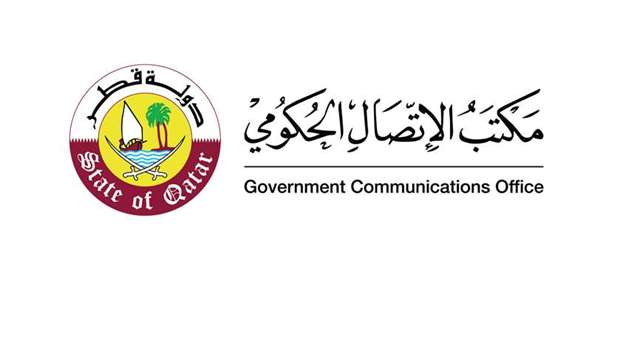The Government Communications Office (GCO) issued a statement on Wednesday in response to Amnesty International’s report regarding violations by a company operating at Al Bayt Stadium.
“In September 2019, the Ministry of Administrative Development, Labour and Social Affairs (MADLSA) was made aware, by the Supreme Committee for Delivery & Legacy, of delayed salary payments by Qatar Meta Coats WLL. The company was financially sanctioned and operations were suspended until all outstanding salaries were paid. Financial insecurity between November 2019 and April 2020 meant that Qatar Meta Coats’ workforce received irregular salary payments during this period,” the statement said.
“In May 2020, the issue was partially resolved and all salary payments from February to May were paid in full by the company. There are a small number of outstanding salary payments preceding February, which will be resolved in the coming days,” it said. Qatar Meta Coats was recently sold and the MADLSA is overseeing the activities of the new ownership to rectify the neglect of the previous owner, including renewing expired residence permits and health cards.
The statement continued, “Working with our international partners, the government has bolstered legislative and operational frameworks to improve and further protect the rights of migrant workers, while clearly setting out the legal obligations of all companies operating in Qatar. We have made it clear to all employers that, in line with legislation, incidents of non-compliance will result in strict sanctions, including heavy fines, shutting down worksites, blacklisting, and prosecuting individuals responsible for neglecting the welfare of their workforce.
“Furthermore, as part of our efforts to tackle exploitative labour practices by companies, draft legislation was passed last week to increase financial and non-financial penalties for labour law violations, including those related to delayed salary payments.
“The government has made significant progress in recent years to reform the country’s labour system. There are still issues to overcome, including those related to the attitudes and behaviours of a small minority. This will take time, but we remain firmly committed to the task.”
“In September 2019, the Ministry of Administrative Development, Labour and Social Affairs (MADLSA) was made aware, by the Supreme Committee for Delivery & Legacy, of delayed salary payments by Qatar Meta Coats WLL. The company was financially sanctioned and operations were suspended until all outstanding salaries were paid. Financial insecurity between November 2019 and April 2020 meant that Qatar Meta Coats’ workforce received irregular salary payments during this period,” the statement said.
“In May 2020, the issue was partially resolved and all salary payments from February to May were paid in full by the company. There are a small number of outstanding salary payments preceding February, which will be resolved in the coming days,” it said. Qatar Meta Coats was recently sold and the MADLSA is overseeing the activities of the new ownership to rectify the neglect of the previous owner, including renewing expired residence permits and health cards.
The statement continued, “Working with our international partners, the government has bolstered legislative and operational frameworks to improve and further protect the rights of migrant workers, while clearly setting out the legal obligations of all companies operating in Qatar. We have made it clear to all employers that, in line with legislation, incidents of non-compliance will result in strict sanctions, including heavy fines, shutting down worksites, blacklisting, and prosecuting individuals responsible for neglecting the welfare of their workforce.
“Furthermore, as part of our efforts to tackle exploitative labour practices by companies, draft legislation was passed last week to increase financial and non-financial penalties for labour law violations, including those related to delayed salary payments.
“The government has made significant progress in recent years to reform the country’s labour system. There are still issues to overcome, including those related to the attitudes and behaviours of a small minority. This will take time, but we remain firmly committed to the task.”

